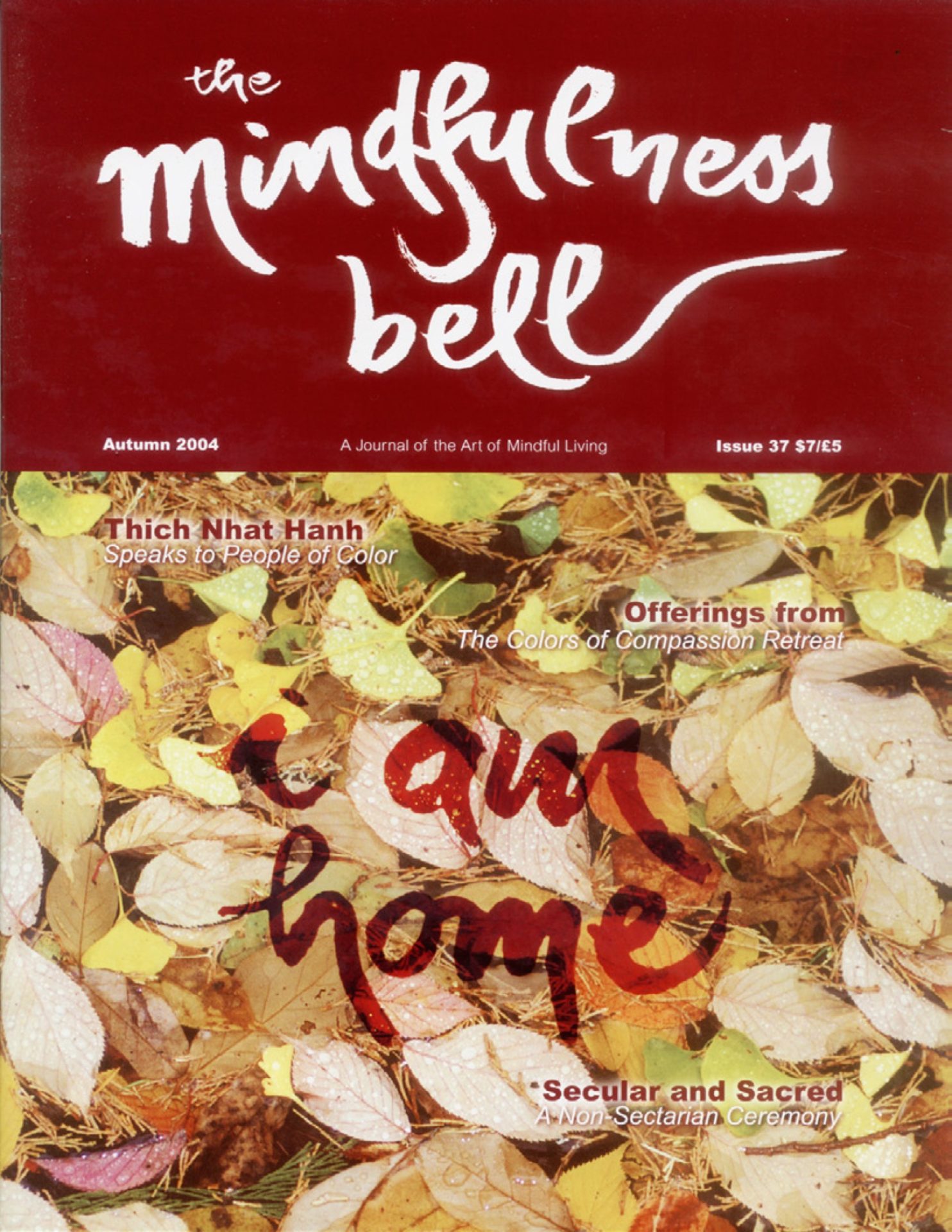by Larry Yang
from Friends on the Path, edited by Jack Lawlor and published by Parallax Press
The practice of these trainings is an opportunity to begin the journey towards narrowing the experience of separation. As humans, we all participate in the harmful behaviors that these trainings are addressing. We all have been the perpetrator and victim, at one time or another. These trainings are for all of us,
by Larry Yang
from Friends on the Path, edited by Jack Lawlor and published by Parallax Press
The practice of these trainings is an opportunity to begin the journey towards narrowing the experience of separation. As humans, we all participate in the harmful behaviors that these trainings are addressing. We all have been the perpetrator and victim, at one time or another. These trainings are for all of us, not just for any particular group or community. And in our conjoint practice is the vision, hope, and possibility of both cultivating non-perpetration of oppression and increasing the compassion in how we live our lives and understand each other.
Entering into the trainings can be done in many ways. They can be used in contemplative meditation practice and as themes for inquiry in individual practice. If used in a Sangha, they can serve as guided meditations and intentions, or the beginning of mindful conversations. Related to this is the possibility to use one or more of these trainings as guiding principles during critical discussion, conflict resolution, mediation, or other sacred dialogue.
The Trainings
- Aware of the suffering caused by imposing one’s own opinions or cultural beliefs upon another human being, I undertake the training to refrain from forcing others, in any way—through authority, threat, financial incentive, or indoctrination—to adopt my own belief. I commit to respecting every human being’s right to be different, while working towards the elimination of suffering of all beings.
- Aware of the suffering caused by invalidating or denying another person’s experience, I undertake the training to refrain from making assumptions or judging harshly any beliefs and attitudes that are different or not understandable from my own. I commit to being open-minded and accepting of other points of view, and I commit to meeting each perceived difference in another person with kindness, respect, and a willingness to learn more about their worldview.
- Aware of the suffering caused by the violence of treating someone as inferior or superior to one’s own self, I undertake the training to refrain from diminishing or idealizing the worth, integrity, and happiness of any human being. Recognizing that my true nature is not separate from others, I commit to treating each person that comes into my consciousness with the same loving kindness, care, and equanimity that I would bestow upon a beloved benefactor or dear friend.
- Aware of the suffering caused by intentional and unintentional acts of rejection, exclusion, avoidance, or indifference towards people who are culturally, physically, sexually, or economically different from me, I undertake the training to refrain from relating to people of similar backgrounds as myself and from being only with people who make me feel comfortable. I commit to searching out ways to diversify my relationships and increase my sensitivity towards people of different cultures, ethnicities, sexual orientations, ages, physical abilities, genders, and economic means.
- Aware of the suffering caused by the often unseen nature of privilege, and the ability of privilege to benefit a select population over others, I undertake the training to refrain from exploiting any person or group, economically, sexually, intellectually, or culturally. I commit to examine with wisdom and clear comprehension the ways that I have privilege in order to determine skillful ways of using privilege for the benefit of all beings, and I commit to the practice of generosity in all aspects of my life and towards all human beings, regardless of cultural, ethnic, racial, sexual, age, physical, or economic differences.
- Aware of the suffering caused to myself and others by fear and anger during conflict or disagreement, I undertake the training to refrain from reacting defensively, using harmful speech because I feel injured, or using argument to justify my sense of rightness. I commit to communicate and express myself mindfully, speaking truthfully from my heart with patience and compassion. I commit to practice genuine and deep listening to all sides of a dispute, and to remain in contact with my highest intentions of recognizing Buddha nature within all beings.
- Aware of the suffering caused by the ignorance of misinformation and the lack of information that aggravate fixed views, stereotypes, the stigmatizing of a human being as “other,” and the marginalization of cultural groups, I undertake the training to educate myself about other cultural attitudes, worldviews, ethnic traditions, and life experiences outside of my own. I commit to be curious with humility and openness, to recognize with compassion the experience of suffering in all beings, and to practice sympathetic joy when encountering the many different cultural expressions of happiness and celebration around the world.
- Aware of the suffering caused by the cumulative harm that a collective of people can impose on individuals and other groups, I undertake the training to refrain from consciously validating or participating in group processes, dynamics, activities, decisions, or actions which perpetuate the suffering that these trainings describe on a familial, social, institutional, governmental, societal, cultural, or global level. I commit to exploring, examining and eliminating the ways that I consciously and unconsciously ally myself with forces that cause harm and oppression, and commit myself to working for the benefit and peace of all.
(c) 2004 Larry Yang
Larry Yang is a psychotherapist and consultant in cultural competency living in northern California. He is a contributor to Dharma, Color, and Culture, a book being published by Parallax Press this month.

